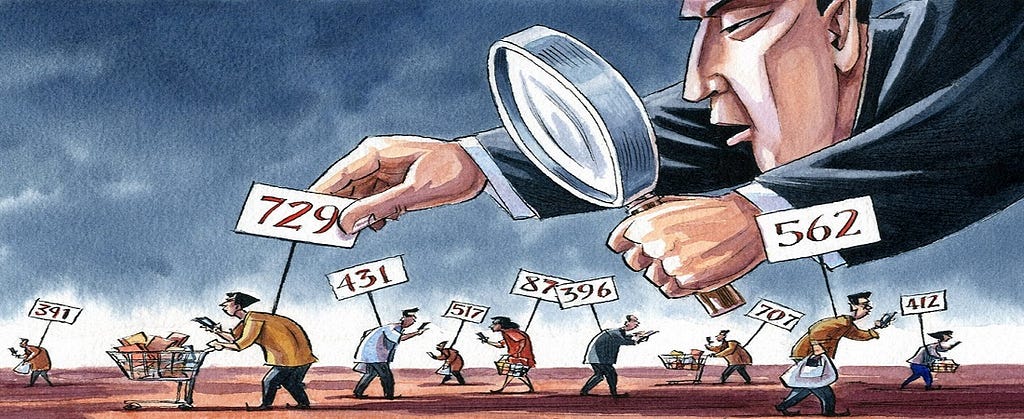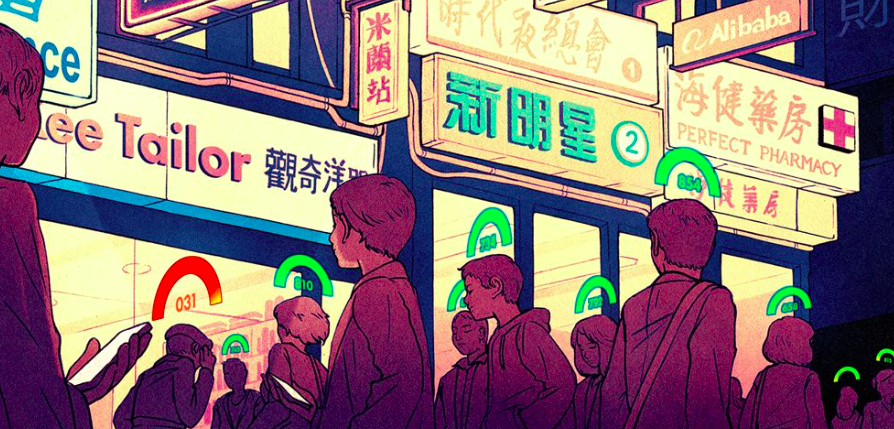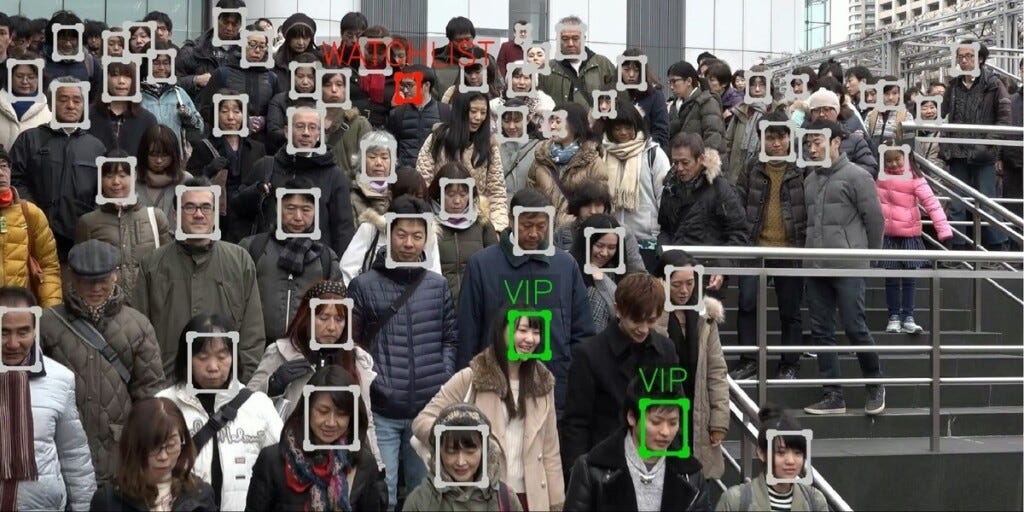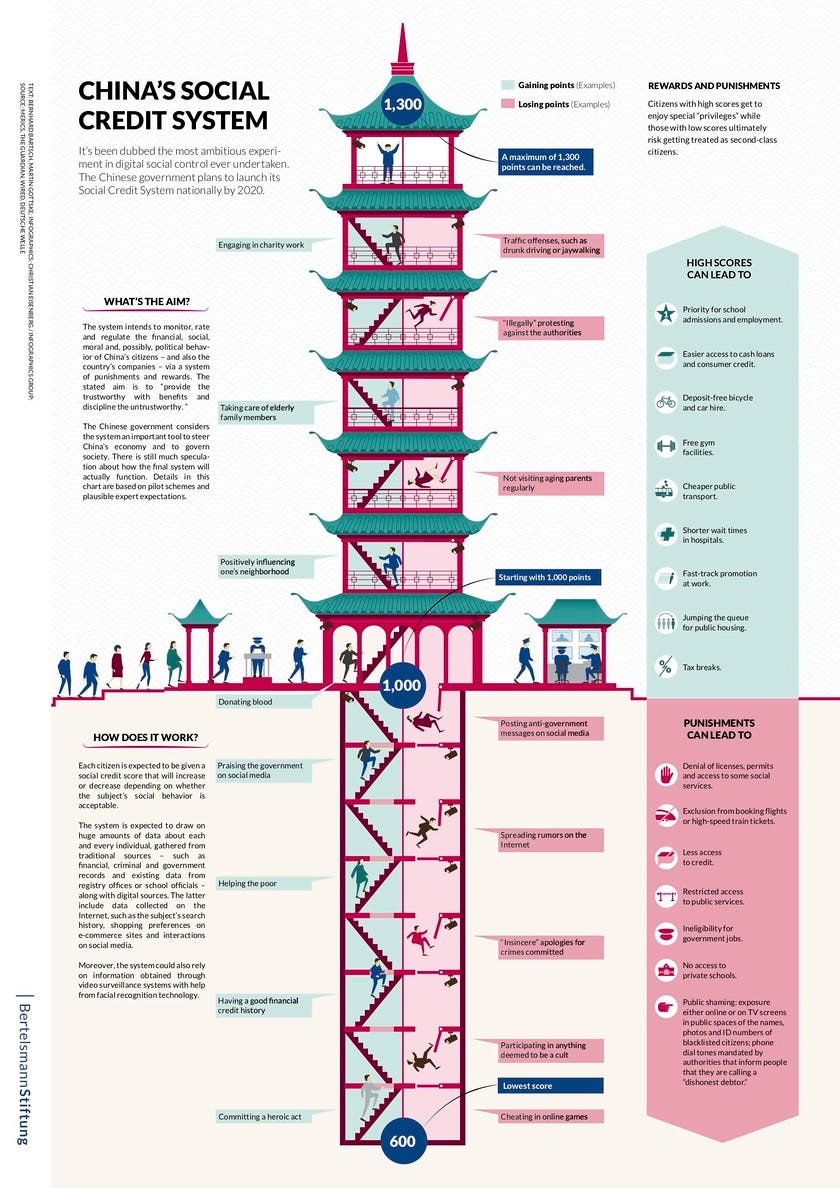This content originally appeared on Level Up Coding - Medium and was authored by uncle Fibonacci
How social credit works — Chinese digital dystopia
Becoming an outcast with whom no one wants to deal is the worst punishment in ancient times. A few thousand years ago, this was torture before death. It was the fear of being kicked out of the pack that maintained the iron discipline in primitive societies.

Perhaps soon we will return to a similar model of social order, in which public approval will come first, and rights and freedoms will be quickly withdrawn by collective decision. This is already happening in China — in some regions of the country there is a system of social rating.
Order system for the Middle Kingdom
In any country, there are norms, rules and restrictions — legislative, moral, sociocultural — that add up to a single system of social behavior. Depending on following them or, on the contrary, rejecting them, the reputation of each individual is formed.
But there is now an abyss between a bad reputation for bad temper and disenfranchisement. Rarely, when a bad, but law-abiding person is deprived of some social benefits.
In China, since 2014, systems have been introduced that really introduce into the social formation that exists in prehistoric communities. With its help, people get a high reputation — this is called “social rating” — they receive much more moral and material benefits than those who do not meet the norm.
But those who do not follow the established standards were actually reduced to the position of the Indian caste of “untouchables”. They have a ban on use everywhere and by institutions, people do not communicate with them, because cooperation with “low-ranking” people can harm worthy representatives of society.
In China, this idea is growing on fertile ground. Maintaining a positive balance of good deeds is achieving the ideal of a “noble husband,” as the Chinese sage Confucius wrote. Many become the judge of everyone — people send thanks or complaints to a specific person. The authority of an influential arbitrator, setting criteria, in terms of content, everything is evaluated by everyone.
This is the realization of one of the principles of the Tao — the state does not interfere in the affairs of people, but creates conditions for the harmonious development of society.
How it works
Since January 2021, China has adopted a new civil code that formally legalized the social ranking system. It is already operating in some provinces, but apparently there is no single network with unified parameters for assessing behavior, standards for rewards and punishments.

I convinced myself of this by asking ordinary Chinese citizens to describe the operation of the system. However, in Guangzhou (Guangdong Province), two local residents had not even heard of her. What then operates in the individual provinces of the Celestial Empire? We can judge this from the documents issued by the State Council and the party apparatus of the Communist Party.
At its core, social credit is a system that automatically and in real time stimulates certain behavior of citizens and exercises self-censorship, says sinologist Leonid Kovacic. It consists of several blocks: surveillance and monitoring of behavior, assessment of the actions of each individual person, and a mechanism for rewards and punishments.
Here’s how it works in practice. A resident of one of the cities where, according to information from official sources, the system works (this is, for example, the city of Suzhou) receives the initial amount of points on his social account — this is 1000 units. Thus, at the start, everyone is put on an equal footing.
In the future, this amount may increase or decrease depending on the behavior of the person. By the way, similar rules apply to legal entities — companies are assessed for compliance with environmental, legal and social standards.
A single information center analyzes online behavior according to 160,000 parameters that come from more than 142 institutions, as well as from banks, surveillance systems on the streets, etc.
When the total score grows to 1050 or more, such an exemplary citizen is assigned the highest rating — AAA. A rating of 1000 points is a prestigious A + category, more than 900 points is an average B level, and less than 849 points is a marginal category C. Citizens with a score of less than 599 are blacklisted in category D, and cannot even work as taxi drivers. In fact, they become social outcasts.
You can earn points by acting in good faith and doing good deeds. Positive karma is acquired by participating in charitable activities, taking care of elderly family members, through good relations with neighbors, through donation, through having a good credit history and not violating traffic rules. And along with this, government support will also bring some points.
“The recently issued document of the State Council contains provisions that the system should promote and encourage the acceptance and dissemination of socialist values among Chinese society. By this we mean both opposition to Western values, and a certain level of self-censorship, and recognition of the guiding and leading role of the party, and commitment to state capitalism. The document calls for further integration of the social credit system into the widest possible range of domestic and foreign economic relations,” says Leonid Kovacic.
Thus, the expression of approval of the authorities and the Communist Party can be recognized as the dissemination of the necessary values and give pluses to karma.
Similarly, the opposite — for criticizing the leadership or opposition activities (participation in protests, spreading anti-government messages or rumors defamatory to the Communist Party and the government) — can deduct points.
In addition, points can be deducted for violation of traffic rules, participation in the activities of sects or financial pyramids, for frequent purchases of alcohol and cigarettes, or insufficient assistance to aging parents.
“Good” citizens receive priority assistance in hospitals and government agencies, they can count on preferential terms for loans, discounts on goods and services. Such people have the right to send their children to private schools and universities, fly planes, ride trains and settle in good hotels. Rating even affects where a person is in dating apps.
Accordingly, all this, to one degree or another, is deprived of people who find themselves at the very bottom of the social pyramid. They will not be able to get almost any job, send their children to a kindergarten or school, they will not be given a loan, they will not be sold a ticket for transport, and they will not be accommodated in a good hotel.
This is already happening — as of April 2018, a poor integrity rating caused 4.25 million high-speed train trips and 11.1 million plane flights to be canceled, the Global Times reported.
They are even afraid to talk to “low-ranking” people — suddenly someone notices and informs the authorities about communicating with a person from category D. Plus, there may be a public censure — all friends and acquaintances will be told about some unseemly act.

Naturally, the question of the objectivity of the assessment and the adequacy of punishment immediately arises. Now each province and region competes in ingenuity and sets its own rewards and punishments, says Leonid Kovacic.
Therefore, the Chinese authorities are trying to harmonize the system and establish uniform standards. Because it happens that due to a late payment on a loan or a fine, a person cannot use high-speed transport or arrange children for school.
But there are serious doubts that it will be possible to do this at all. Firstly, the authorities have enough current issues that need to be urgently addressed — the same coronavirus factor in China has not yet faded into the background. Secondly, the authorities have not been able to solve the problem of timely and complete exchange of information between departments. And this is not a technical difficulty, but a political issue — as is often the case, one ministry simply does not want to share information with another, and as a result, the whole system does not work.
In terms of information exchange, this is a matter of interdepartmental competition and struggle. These are problems of the political and administrative structure, which it is not clear how to solve, the expert says.
“When the first documents on the system came out, everything was ominous and beautiful. There was an image of such a digital panopticon in which people, like robots, would follow the instructions of Big Brother. But now there is a feeling that the system of social ratings is a big political excess, which is not the fact that it is doomed to success,” says Leonid Kovacic.
But perhaps the system has already been put into operation in one form or another — it’s just not officially announced, the sinologist argues.
“Perhaps the authorities deliberately do not publicize the work of the system so that society is controlled by an invisible hand. And there is no doubt that the management of Chinese society is well organized. Take the same zero-tolerance strategy for COVID-19, which, with a few interruptions, is still operating and bringing results,” says Leonid Kovacic.
So far, the social rating system has not been integrated with the digital yuan in any way. Nevertheless, no one bothers to link finances and social rating in order to add leverage to people. Indeed, in this case, it will be possible to take away not only rights, but also money from citizens from group D. And hand them over to trustworthy citizens from group A.

📰 Subscribe to Uncle Fibonacci to stay up to date
How social credit works — Chinese digital dystopia was originally published in Level Up Coding on Medium, where people are continuing the conversation by highlighting and responding to this story.
This content originally appeared on Level Up Coding - Medium and was authored by uncle Fibonacci
uncle Fibonacci | Sciencx (2022-06-04T01:36:42+00:00) How social credit works — Chinese digital dystopia. Retrieved from https://www.scien.cx/2022/06/04/how-social-credit-works-chinese-digital-dystopia/
Please log in to upload a file.
There are no updates yet.
Click the Upload button above to add an update.
